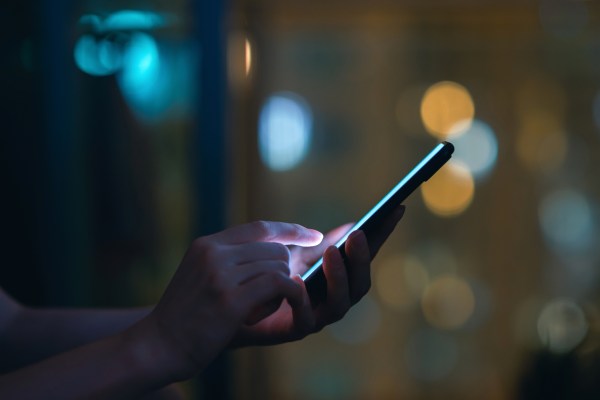A federal antitrust lawsuit over the long-shuttered alternative app store called Cydia has now been given the green light to proceed, after its initial complaint was dismissed. The Cydia app store, which once featured apps and other tweaks that weren’t permitted by Apple’s official App Store policies, is suing Apple over its alleged unlawful monopoly over iOS app distribution — a monopoly that contributed to the end of Cydia’s business, it says.
The plaintiff, SaurikIT LLC, maker of the rival app store, originally filed its legal challenge back in 2020, but U.S. District Judge Yvonne Gonzalez Rogers — the same judge who recently issued the Apple-Epic ruling now under appeal — granted Apple’s motion to dismiss the first complaint on the grounds that its claims were outside the statute of limitations. But the judge allowed Cydia to amend its complaint, which was filed in January 2022.
That new complaint is now moving forward, as Judge Gonzalez Rogers has rejected Apple’s motion to dismiss it. Apple had again argued Cydia’s allegations fell outside the four-year window allowed under federal antitrust law, reported Reuters, which first noted the lawsuit’s update this past Friday.
In Cydia’s amended complaint, it says Apple more recently implemented design changes that prevented iOS app distributors from being able to provide apps that were usable on iOS devices. These changes were rolled out from 2018 to 2021, the complaint states, which brings the legal challenge into the permitted time frame for an antitrust argument.
More specifically, the complaint cites 2018 and 2019 technical restrictions like runtime code modification prevention, pointer authentication, physical map codesigning, memory tagging extensions and other control mechanisms designed to target Cydia and other alternative app stores from delivering functional apps. It also references Apple’s contractual restrictions, which prevent developers from using alternative payment mechanisms. And it points out that Apple’s numerous restrictions have impacts on other app stores besides itself, like the newer AltStore.
“…[the] plaintiff has plausibly alleged that Apple engaged in changes in its technological updates, which occurred within the four years preceding the filing of the lawsuit,” Gonzalez Rogers wrote in the new filing. “Accordingly, to the extent plaintiff’s claims rely on Apple’s technological updates to exclude Cydia from being able to operate altogether, those claims are timely,” the decision read.
Cydia is ultimately looking to recoup damages and injunctive relief and wants to move toward a trial by jury. Apple has been given 21 days to respond to the amended complaint.
While Apple continues to battle with iOS developers on other fronts, including with the ongoing Epic appeal, the Cydia lawsuit is particularly interesting because it’s focused on whether third-party app stores have a legal right to exist and do business. Cydia is arguing they do, pointing to the decisions made by the U.S. Copyright Office which declared iPhone jailbreaking legal in 2010. Because Apple lost the case to make jailbreaking illegal, it instead moved to make jailbreaking an impossibility through both technical and contractual means, Cydia is arguing.
It’s a creative tactic to reference the jailbreaking decision and one that allows Cydia to point to all sorts of other changes Apple has made in the years since that ruling. For example, the complaint contrasts how Apple has moved against some rival app stores like AltStore and Cydia as well as against cloud gaming services, but then permitted certain apps to distribute apps, as with WeChat and its distribution of “mini-programs.” Arguably, these are all very different types of experiences, but the case being made is that Apple is making choices designed to restrict certain rivals and not others.
While the complaint itself reads a bit like a grab-bag of antitrust concerns — some of which really have nothing to do with Cydia’s right to operate. At one point, Cydia complains about the $99 per year Apple developer fee; at another, it pleads Spotify’s case for pages — which almost makes you wonder who’s paying Cydia’s legal fees!
Still, it’s interesting to have Cydia in the fight, given the outsized role it’s played in iOS innovation over the years.
As longtime iPhone jailbreakers likely recall, Cydia was once a popular and sizable marketplace filled with apps and tweaks that skirted Apple’s official rules. To use Cydia, consumers would first have to jailbreak their iPhones to circumvent Apple’s security protections — a process that required jailbreaking teams to constantly search for new ways to unlock consumer devices to permit sideloading apps.
At one point in 2013, Cydia was used by some 23 million users, according to figures from its creator, Jay Freeman.
Though jailbreaking was sometimes associated with giving users a way to download pirated apps, Cydia also contributed to the development of iOS itself.
Dozens upon dozens of iOS features were seemingly inspired by tweaks being marketed on Cydia, in fact.
Long before users were customizing their iPhones with widgets and custom icons, for instance, Cydia users were downloading theme managers like Winterboard to overhaul their iOS look and feel with custom themes. A popular Cydia tweak SBSettings was iPhone’s first Control Center, before there was a Control Center. Cydia users were also first to have access to things like custom keyboards, private web browsing, dynamic wallpapers, native QR code scanning, screenshot previews, dark modes, auto-updating apps, a card-based app switcher, the ability to delete stock apps, screen recording tools and so much more.
However, Cydia’s ability to actually win this case could be more of a longshot, given that Gonzalez Rogers already declared last year in the Epic ruling that Apple was not a monopolist.
